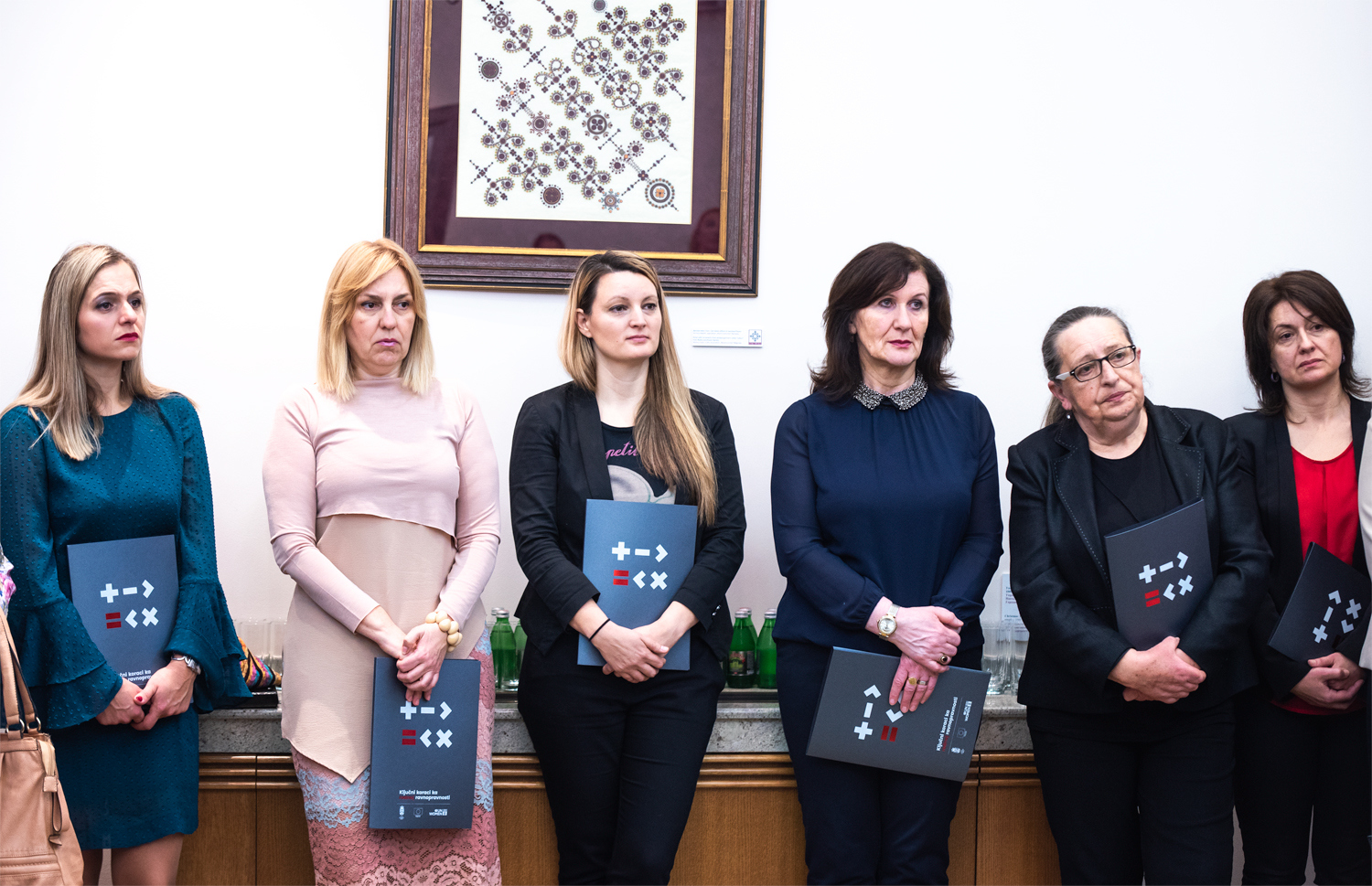Hotline: +381 61 63 84 071
There need to be more investment opportunities for women entrepreneurs

Photograph by: Marija Piroški
Women’s motivation to start a business
Female entrepreneurship is still rare in some countries, and across the world there seems to exist a gap between male and female entrepreneurship and self-employment. What exactly is causing this gap?
Gender gaps in business and self-employment
According to a 2017 Policy Brief on Women Entrepreneurship by the OECD and the European Commission, the rate of self-employed and new business owners is still smaller for women than for men in all EU countries. Data from 2015 says that women (9.9%) are half as likely as men (17.8%) to be self-employed in the European Union. Also, during the period of 2010-2014, only 2% of women reported they were the owners of a new business (compared to 4% of men).
According to the Policy Brief, the vast majority of women operate small businesses and are less likely to have employees. Although these businesses have lower growth potential than those created and owned by men, they actually have same survival rates. Most women tend to be self-employed or own businesses in the health, social and service sector, while men overwhelmingly are self-employed in the construction sector. Generally, self-employed women also work less hours than self-employed men.
Women’s motivation to start a business
There are many reasons why women choose to create their own jobs. For most, work-life balance and having more time for themselves and their families is a huge factor. Many women also choose to create their own jobs in order to break the glass ceiling, which means they have to create their own businesses to have access to top leadership positions.
This might help to explain why women tend to have lower expectations for business growth. Although they are concerned with making a living or some extra money to help with expenses, their business might not be their first priority. For many, it is actually a tool in order to have greater control over their work schedule and have the chance to spend more time with family members.
Gender stereotypes are harmful for women entrepreneurs
According to the Policy Brief, there are many factors that work against women entrepreneurship. To start, in many cultures, women entrepreneurship is not actually valued. There are still gender stereotypes that tend to limit women’s possibilities and that can have a real impact on the self-esteem of women as entrepreneurs. For example, in the European Union, 52% of women stated that fear of failure prevented them from starting a new business, compared to only 42% of men.
When women become entrepreneurs, they are also less valued than men because of gender stereotypes. Investors and clients might think women are less capable of running a business and there are still very few examples of successful female entrepreneurs in our collective imagination.
Women think they do not have skills to run a business
Women generally believe they are not as well-equipped as men to start their own businesses. During the 2010-2014 period, half the men in the EU said they had the skills to start their own businesses, but only a third of women believed the same thing.
Furthermore, although governments have started to invest in training opportunities for new entrepreneurs, women are much less likely to participate in these kinds of training sessions.
It’s important to remember that the lack of management and leadership opportunities for women across the world leads them to have less experience than men in such positions, and being a manager or a leader in a previous company can be a stepping stone to starting a business.
There need to be more investment opportunities for women entrepreneurs
All these factors work against women when they are looking for ways to finance their new business. According to the Policy Brief:
“This gender gap in access to finance has been examined by a large number of studies providing evidence that women face “higher hurdles” in financing their businesses (Brush et al., 2014). These hurdles are caused by lower levels of entrepreneurial experience, participation in more marginal female-dominated sectors, gender-biased credit scoring and gender stereotyping in the lending process (Alesina et al., 2013; Saparito et al., 2013). Consequently, women entrepreneurs typically start their businesses with less money and are more reliant on self-financing (Shaw et al. 2009).”
Women’s social networks also do not usually include other entrepreneurs and service providers with the power to invest or advertise their business, but rather friends and family. Furthermore, in many countries, family and tax policies can actually discourage women from becoming entrepreneurs – for example, the lack of a maternity leave for self-employed or business owners.
What can we do?
According to the Policy Brief, in order to foster women entrepreneurship, there are five main policies that governments should aim to implement:
- Create a network of female entrepreneurs to act as ambassadors;
- Promote training and mentoring specifically for women entrepreneurs;
- Facilitate access to finance;
- Build networks of entrepreneurs with key actors;
- Promote work-life balance and access to social protection.
If each of us lobbies our national and local governments to invest in such policies, women should start thinking of starting a business as a real option, rather than an unattainable dream.
This text was produced in the framework of the project "Support to Priority Actions for Gender Equality in Serbia", implemented by the United Nations Entity for Gender Equality and the Empowerment of Women (UN Women) with funding from the European Union. The views contained in the text are those of the authors and do not necessarily represent the views of UN Women, the United Nations or any of its affiliated organizations. The project is part of the initiative for supporting women entrepreneurship, women in rural areas, decreasing labor market and employment discrimination, encouraging dialogue on the importance of economic empowerment of women and exchange of knowledge and information among women entrepreneurs.













 FACEBOOK
FACEBOOK TWITTER
TWITTER YOUTUBE
YOUTUBE